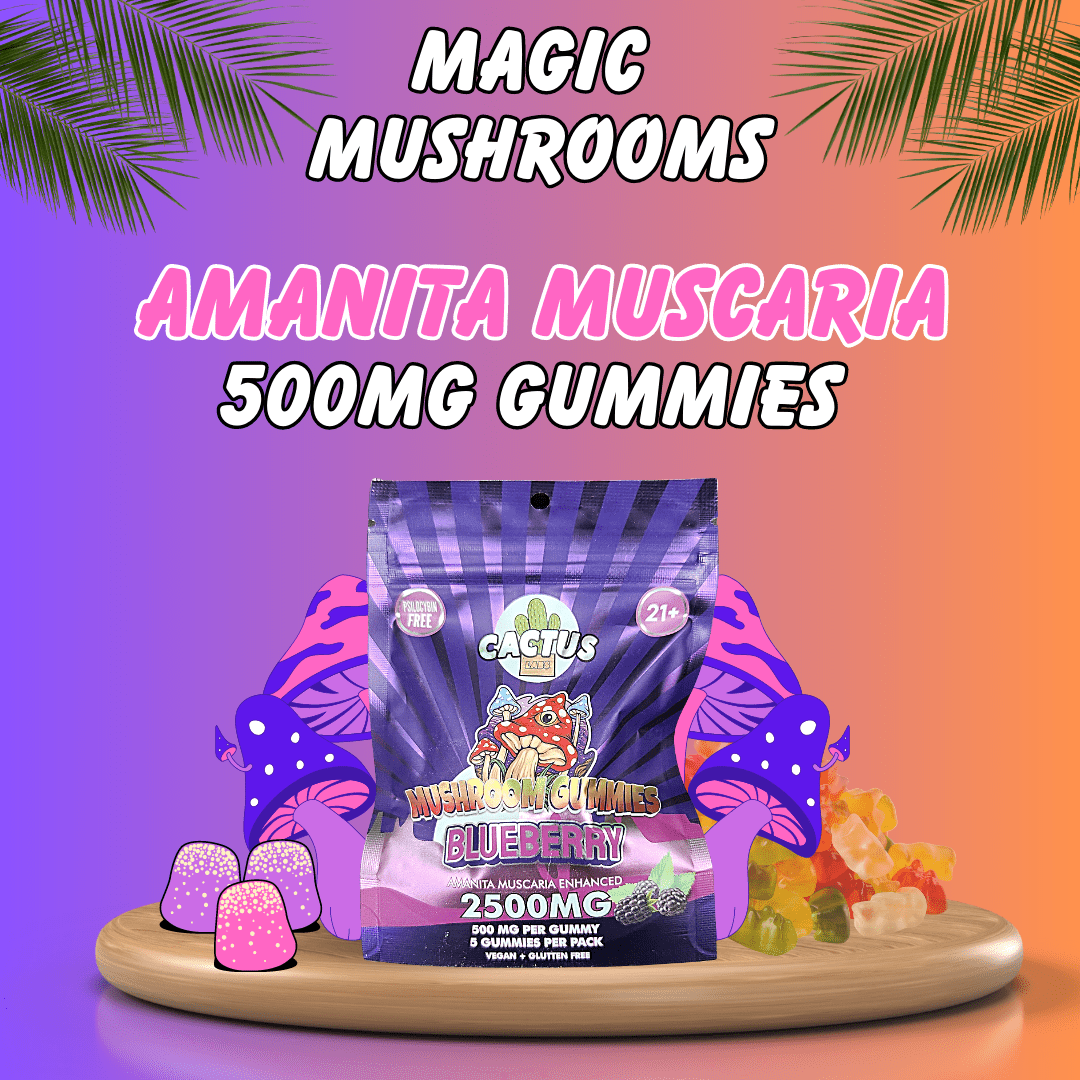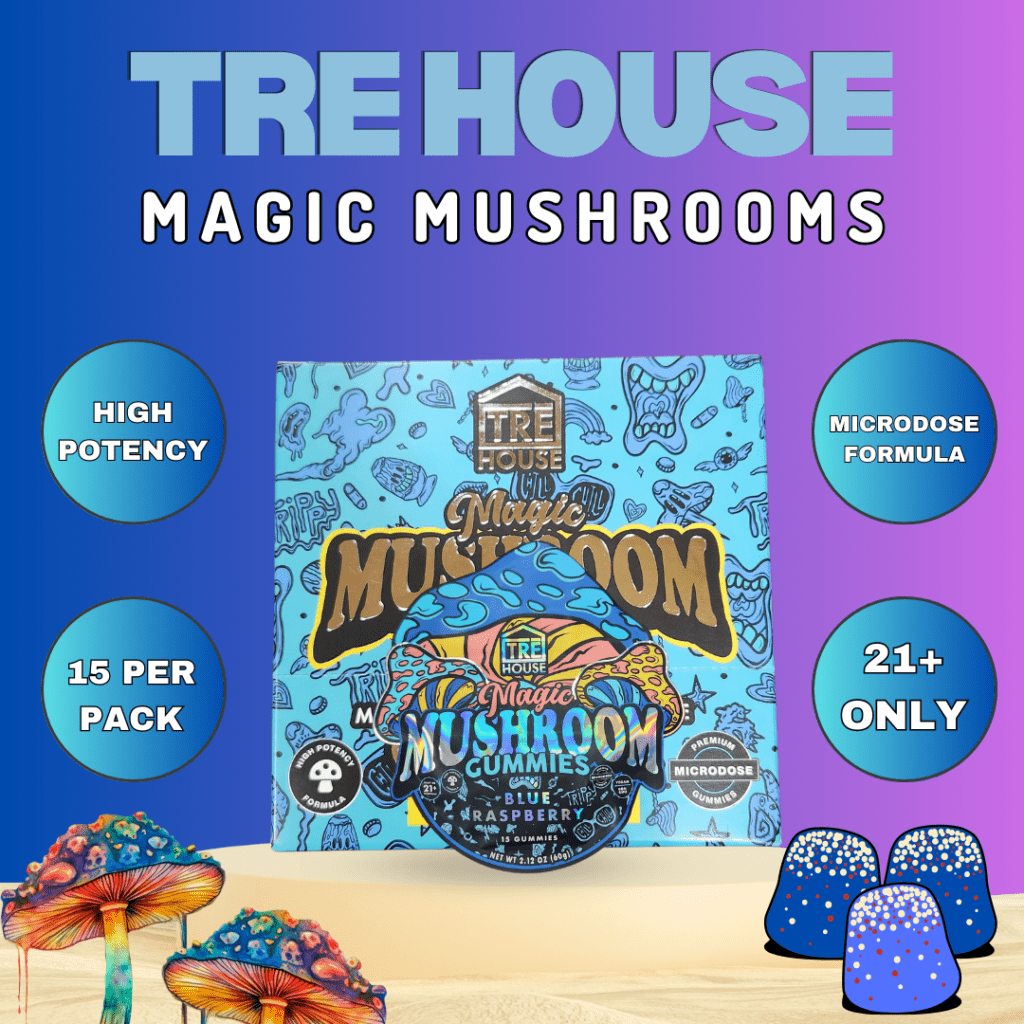To Listen To The Full Audio Episode Click Here: The Daily Dose Podcast Audio
Benefits Of Amanita Mushrooms What To Know
Introduction
Amanita Muscaria mushrooms, also known as fly agaric, are one of the most iconic and intriguing species of fungi on the planet. With their distinctive bright red caps and white spots, they have been a subject of fascination for centuries.
While these mushrooms are widely known for their psychoactive properties, there is much more to them than just their mind-altering effects. In this article, we will explore the various benefits of Amanita Muscaria mushrooms, from their medicinal properties to their cultural significance.

1. What are Amanita Muscaria Mushrooms?
Amanita Muscaria mushrooms are a type of basidiomycete fungi that are widely distributed across the Northern Hemisphere. They are found in temperate and boreal regions of Europe, Asia, and North America, growing on the ground near various tree species, such as pine, spruce, and birch.
The mushroom’s cap is typically bright red, and it has white spots or warts on its surface. The cap can reach up to 20 cm in diameter and is usually convex, becoming flat or depressed with age. The gills beneath the cap are white or yellowish, and the stalk is white, usually with a ring or skirt-like structure at its base.

2. The History and Cultural Significance of Amanita Muscaria
Amanita Muscaria mushrooms have a rich history of use in various cultures around the world. They have been used for their psychoactive properties in shamanic practices in Siberia and other parts of Asia for thousands of years. In these cultures, the mushrooms were used for spiritual and healing purposes, with shamans consuming the fungi to enter into a trance state and communicate with the spiritual realm.
The mushrooms have also been used in European folklore and mythology, with their distinctive appearance inspiring many stories and legends. In some cultures, the mushrooms were seen as magical or mystical objects, with their red and white coloring representing the colors of the Amanita Muscaria mushroom and the Nordic god Odin’s attire.

3. The Medicinal Applications of Amanita Mushrooms
While Amanita Muscaria mushrooms are widely known for their psychoactive properties, they also have a range of medicinal benefits. The benefits of Amanita include:
3.1 Pain Relief and Anti-Inflammatory Properties
Amanita Muscaria mushrooms contain compounds such as ibotenic acid and muscimol, which have been found to have analgesic and anti-inflammatory effects. Studies have shown that these compounds can help reduce pain and inflammation in the body, making them a potential treatment for conditions such as arthritis, migraines, and neuropathic pain.
3.2 Immune System Boosting Effects
Amanita also contains unique compounds that provide immune supporting benefits much like what we have discovered in other well known mushrooms.
3.3 Psychedelic Properties
At the heart of Amanita muscaria’s allure lies its psychedelic nature. The mushroom contains several active compounds, including muscimol and ibotenic acid, which induce profound alterations in perception, consciousness, and self-awareness. When consumed in the right dosage, this mystical fungus can transport individuals into a realm where boundaries blur, and the ordinary gives way to the extraordinary.

4. The Psychedelic Properties of Amanita Muscaria
4.1 Impact on Neurotransmitters
Muscimol and Ibotenic Acid interact with the neurotransmitter gamma-aminobutyric acid (GABA) receptors in the brain. GABA is an inhibitory neurotransmitter responsible for reducing neuronal activity, promoting relaxation, and regulating anxiety levels. Muscimol acts as a GABA agonist, binding to GABA receptors and enhancing their inhibitory effects.
4.2 Altered Perception and Sensory Experience
The activation of GABA receptors by Muscimol leads to profound changes in perception and sensory experience. Users may report a shift in visual perception, vivid colors, intensified emotions, and altered auditory experiences. These effects can range from deeply introspective to euphoric and transcendental.

5. Risks And Side Effects You Should Know
5.1 Toxicity Levels Vary
The toxicity levels of Amanita Muscaria can vary significantly depending on various factors, including the region where it grows and the specific strain. This variability makes it difficult to determine a standardized safe dosage. As a result, individuals who consume Amanita Muscaria expose themselves to unpredictable risks, as the mushroom’s potency can vary greatly from one instance to another.
5.2 Gastrointestinal Distress
Consuming Amanita Muscaria can lead to gastrointestinal distress, causing symptoms such as nausea, vomiting, and diarrhea. These side effects are commonly reported and can range in severity depending on the individual and the amount ingested. It is crucial to note that even a small dosage can trigger these unpleasant gastrointestinal symptoms.
5.3 Neurological Effects
The psychoactive compounds present in Amanita Muscaria can have profound effects on the central nervous system. While some individuals seek the hallucinogenic experience, it’s important to recognize that these effects can vary greatly from person to person.
The potential neurological effects include altered perception of time and space, distorted visual and auditory sensations, and changes in mood and emotions. However, it is crucial to remember that these effects can be unpredictable and may not always result in a positive experience.
5.4 Confusion and Disorientation
One of the most concerning side effects of Amanita Muscaria consumption is the potential for confusion and disorientation. The psychoactive compounds can interfere with cognitive function, leading to a state of mental confusion and impaired judgment. This state can be disorienting and pose risks, especially in unfamiliar or potentially dangerous environments.
5.5 Physical Coordination Impairment
Amanita Muscaria can also impair physical coordination, making tasks that require fine motor skills challenging to perform. The alteration of neurotransmitters in the brain can affect muscle control and coordination, potentially increasing the risk of accidents or injuries.
Engaging in activities that require precise movements, such as driving or operating machinery, while under the influence of Amanita Muscaria, can be extremely hazardous.
5.6 Allergic Reactions
While rare, some individuals may experience allergic reactions to Amanita Muscaria. Symptoms of an allergic reaction can include itching, rash, swelling, difficulty breathing, or anaphylaxis.
It is important to be aware of any potential allergies or sensitivities before consuming Amanita Muscaria and to seek immediate medical attention if any allergic reactions occur.
Conclusion
The benefits of Amanita mushrooms are many but you should always speak with your doctor before starting or experimenting with any substances, this article is for informational purposes and you should do your own research before taking amanita for any reason.
FAQs
What are Amanita Muscaria Mushrooms?
What are the medicinal benefits of Amanita Muscaria?
What are the psychedelic properties of Amanita Muscaria?
What are the risks and side effects of Amanita Muscaria?
Related Articles:
#amanitamushrooms #amanitamuscaria #whatisamanitamushrooms #howdoesamanitamuscariawork #amanitamushroomsfordepression #AmanitaMuscariaBenefits #FlyAgaricMushroom #NatureTherapy #MysticalFungus #AncientTraditions #MindBodyWellness #alternativehealing #herbalsupplements #healthandwellness #naturalmedicines #plantmedicines #learnaboutplantmedicines #thedailydose
Meet The Author





